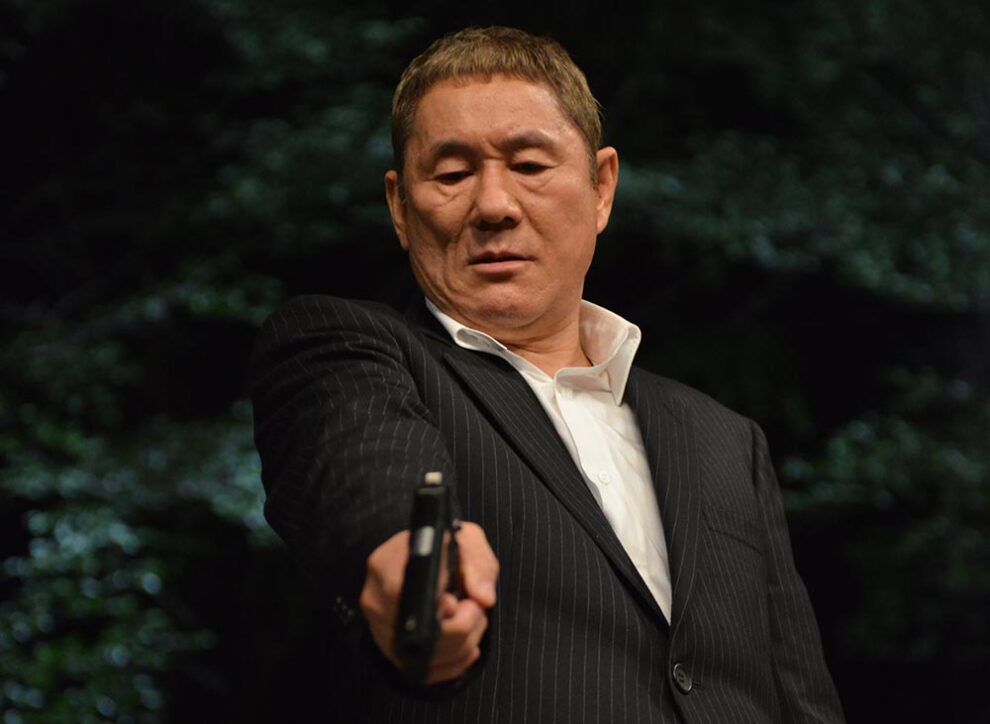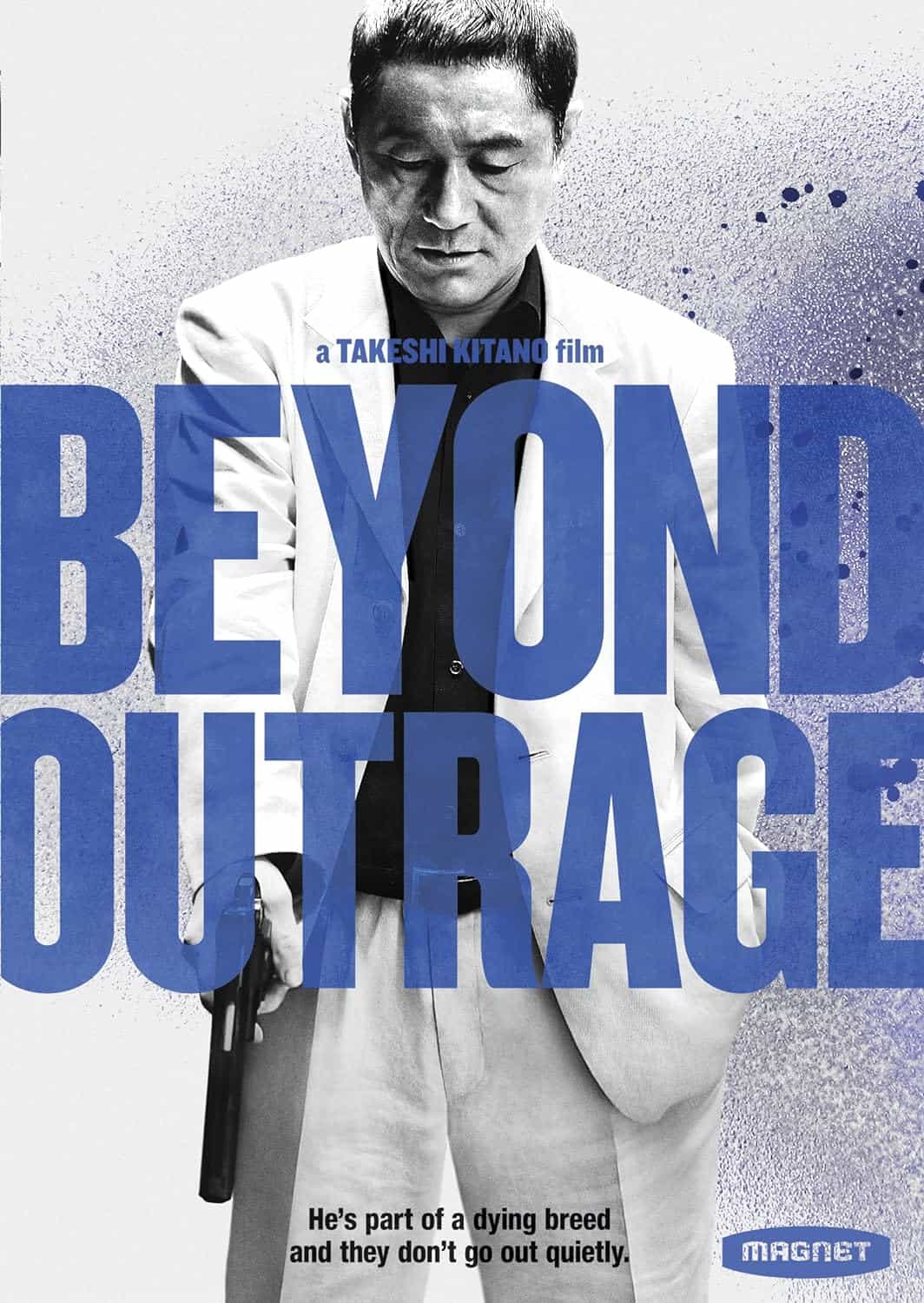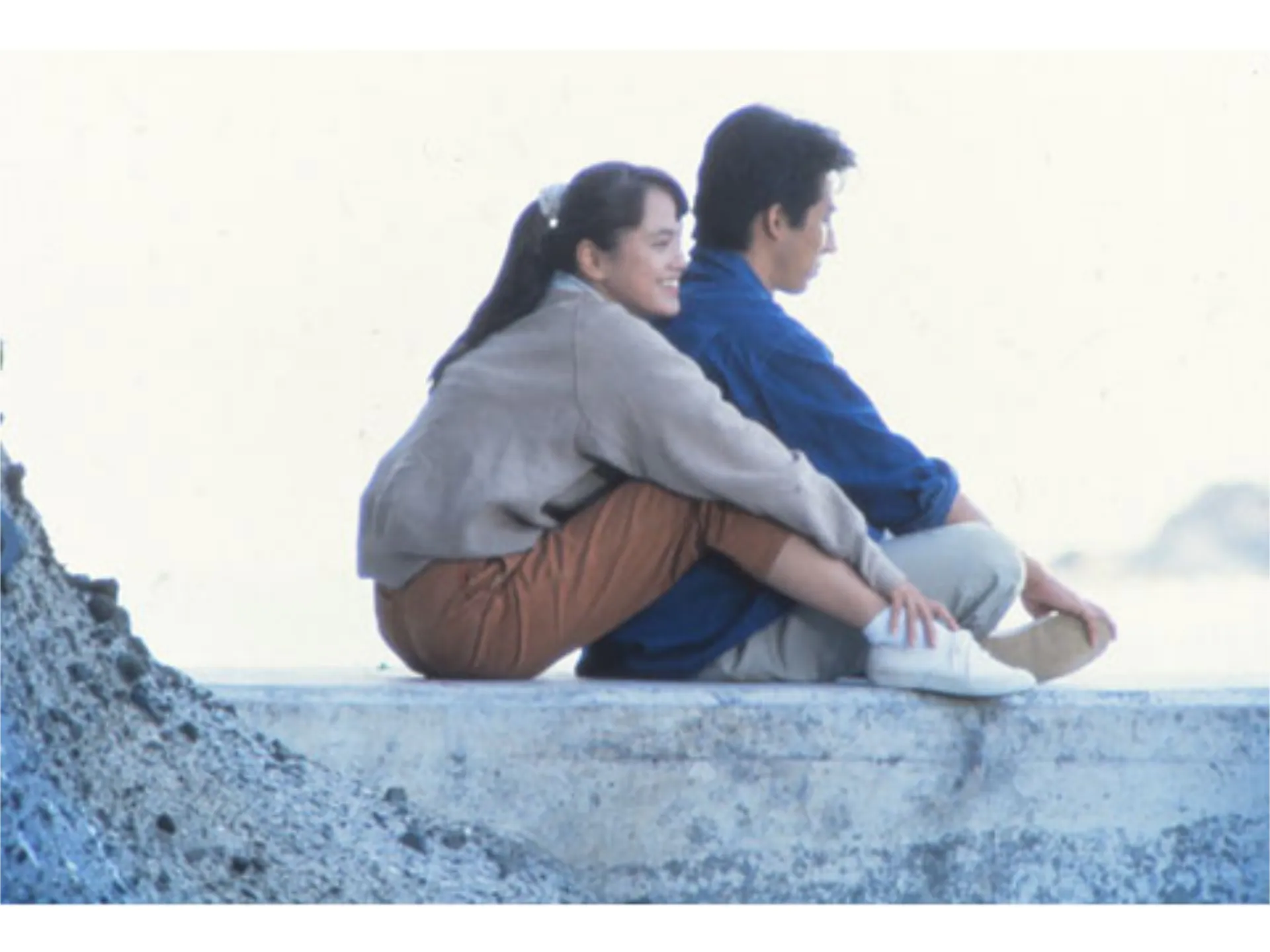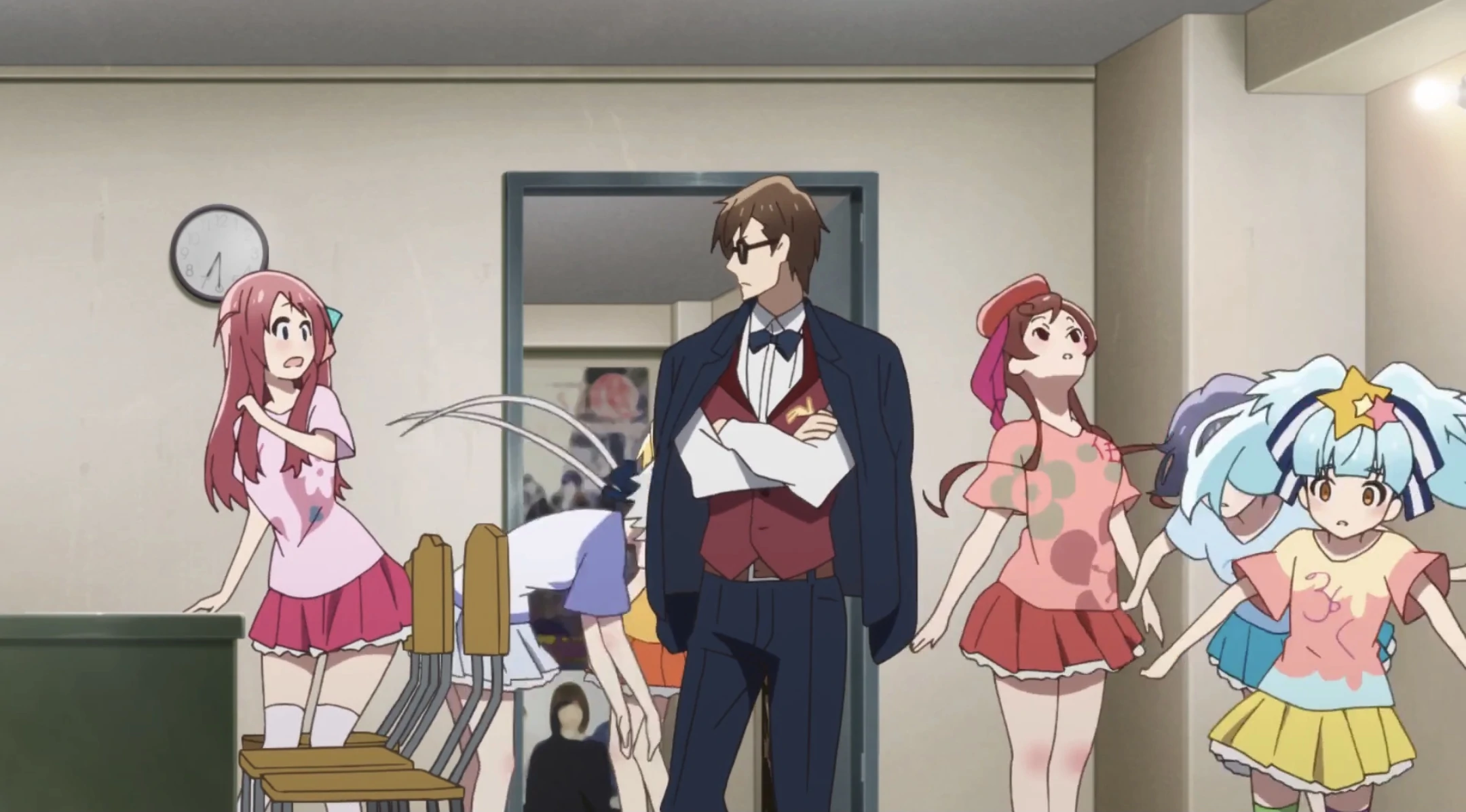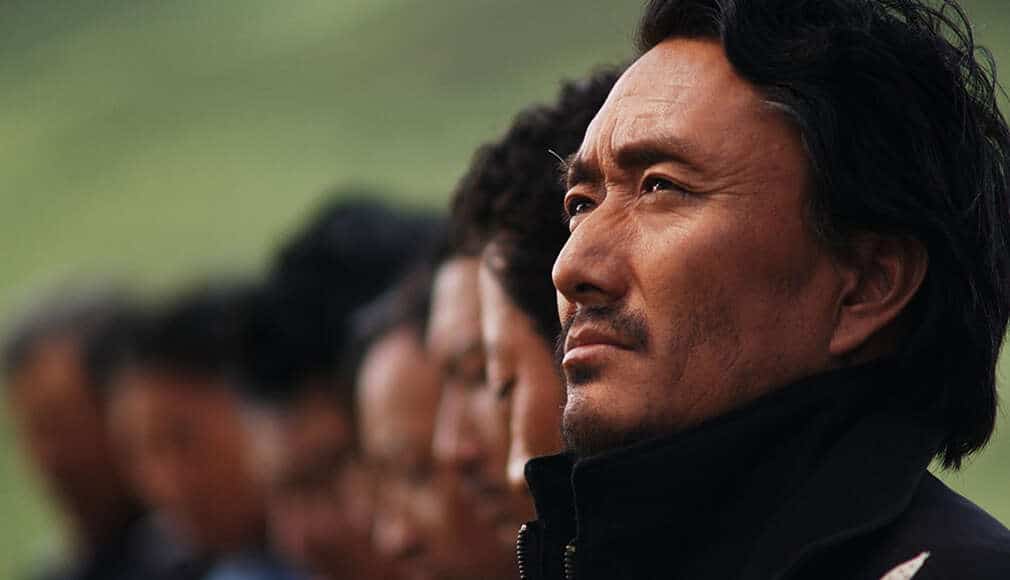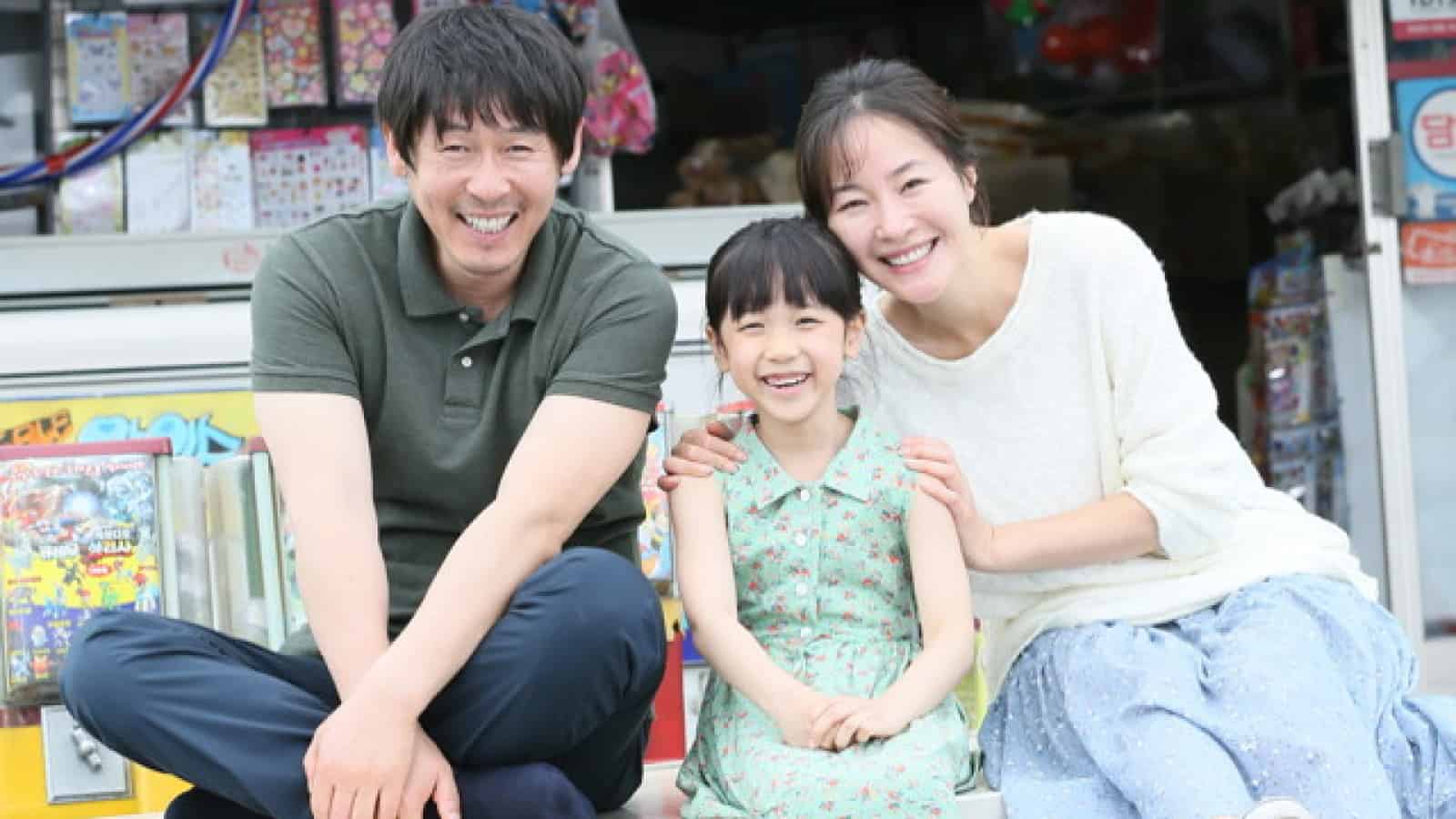In the 1960s, director Kinji Fukasaku created what would be the ultimate yakuza-sage for years to come with his “Battles Without Honor and Humanity”-series. While the various features of the series can be regarded as great entertainment on the one hand, they gain much more value when considered as a reflection on human greed, power and manipulation. Over the course of his career, director Takeshi Kitano has made quite a number of features, such as “Sonatine” or “Brother”, which would blend these themes with a certain poetic or philosophical approach, depending on your point of view. However, with the “Outrage”-series, he attempted to create his own version of Fukasaku's epic, albeit with a much more cynical undertone.
The second entry into the “Outrage”-series, “Beyond Outrage”, takes place five years after the incidents of “Outrage”, with the Sanno-kai crime syndicate at a new height of its power thanks to its leadership. Kato (Tomokazu Miura), the new head of the clan, with the help of his right-hand-man Ishihara (Ryo Kase), aims for more frequent collaboration with the world of politics and international trade and crime. While the “old guys” of the syndicate regard this new leadership with mixed feelings, especially since Kato rewards performance over loyalty, the new, younger generation within their ranks thrive under Kato and Ishihara. However, with his superiors complaining about the Sanno-kai becoming too powerful, corrupt detective Kataoka (Fumiyo Kohinata), who has collaborated with the syndicate in the past, plans a scheme which will eventually eradicate all of his problems.
One central element of this plan is Otomo (Takeshi Kitano), a disgraced former member of the Sanno-kai, who was betrayed by his former underling Ishihara. Even though he wants nothing more than to retire, Kataoka convinces him to make peace with his past enemy Kimura (Hideo Nakano) and take on the Sanno-kai. However, once Kato and Ishihara hear about the threat against them, they find themselves in the middle of a war, also within their own syndicate, as the underbosses try to seize the opportunity to regain their former power.
Check also this video
When we left the world of “Outrage”, the distinction between criminals and police had become quite blurry, but in the sequel, the distinction is minor or perhaps even non-existent. Much like the later additions of Fukusaku's aforementioned epic, the underworld aims to get more influence in politics and economics in an attempt to become “legal”, which of course means nothing but to tarnish those institutions that are part of the real world. The irony, which Kitano contemplates on with characters such as Kataoka, is the amount of corruption which has already taken place, making these characters appear to be much more of power-hungry schemers than the yakuza bosses. With a few exceptions, the world of the yakuza, as portrayed in “Beyond Outrage”, is in complete disarray and chaos, with agents of the other world being the most despicable. And while this is, similar to its predecessor, very much an ensemble movie, Fumiyo Kohinata as Kataoka is the scene-stealer, showcasing the malicious delight in coming up with schemes and the gangsters being essentially his pawns and playing into his hands.
Additionally, “Beyond Outrage” portrays a paradigm shift within society. Whereas the gangster in Fukasaku's world would talk about extortion, blackmail and territories, this is not so much the case when it comes to the criminals Kitano shows. His own character Otomo is part of a dying breed and he knows it, disillusioned with hierarchies and other systems of power, while the new generation talks more about “hedge funds” and “currencies”. The Sanno-kai under the leadership of Kato resemble more and more a modern-day company with international ambitions, keen on throwing out the old and trusting only in number, statistics and, of course, performance. Within the landscape of Japanese gangster movies, this approach is certainly not new, but not quite as thoroughly portrayed as Kitano does in the second part of the “Outrage”-series.
This is not to say “Beyond Outrage” does not fulfill the criteria of the genre. Similar to its predecessor and other features by Kitano, once the violence starts it does not stop and also has quite a few “inventive” ways to offer when it comes to getting rid of someone or take revenge. However, in a world where everyone, gangster or not, has become expendable, the kind of mercilessness and brutality of these acts of violence does not surprise, as it emphasizes a cynical mindset. Nevertheless, due to the slow pacing of the movie and the slow transitions between scenes, these acts often surprise you and come as a shock, especially because of their sometimes extreme nature.
While many aspects are noteworthy within the second entry into the “Outrage”-series, Keiichi Suzuki's score deserves to be mentioned. Although he goes back to the tracks of the previous features, the change from more jazzy tunes in the beginning to much more chaotic and frantic sounds supports the idea of a world in disarray, as well as violence being a constant factor for these people.
“Beyond Outrage” is a great sequel to “Outrage” as it expands on its themes, character and the world they inhabit. Takeshi Kitano directs a gangster movie whose violence and cynicism stems from the cultural landscape we still live in, its trust in performance and number rather than humanity.


